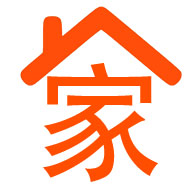- 首页
-
菜单
- 家园币
-
比特币
Financial Markets by TradingView
您正在使用一款已经过时的浏览器!部分功能不能正常使用。
- 主题发起人 WwowW
- 发布时间 2020-10-21
-
- 标签
- cra 报税,海外收入,海外资产
更多选项
导出主题(文本)这也有双轨制价格?
听听
为了少交税?是的
你国内的房子如果是自住的,卖了不需要交加拿大的税吧?具体得问问专家。
海外收入好像也不计算海外自住房价值?你国内的房子如果是自住的,卖了不需要交加拿大的税吧?具体得问问专家。
具体看看:https://www.ourdream.ca/forums/thread-119667-1-1.html


【明明白白我的税】海外资产申报中的问题解析 | ibaoxian.ca 爱保险网站
1.问:什么时候应该报海外资产申报表? 答:第一年不用报详细的海外资产申报表,第二年开始报详细的海外资产申报表。 例如:2019登陆的,在2021年4月30号前报2020年税的时候,首次报海外资产申报表。注意2020年头报2019年税的时候,切记海外收入也是需要报税的。 2.问:我需要报海外资产吗? 答:海外资产的申报要求是只要在2019年任何时点上,在您名下的海外资产总成本超过10万加币,就必须
enjoylifeinsurance.com
关于“海外资产申报”,你真的弄明白了吗?
在温哥华,随便翻开一份简体中文报纸,跳进你眼帘里频率最高的几个字是什么?连没读过几年书的老婆婆都知道这个问题的答案: “海外资产申报” 那都是黑体大字啊! 也不知道从哪天开始的,“海外资产申报”,成了新老移民的第一大关注,也成了老少爷们的第一大困惑,还成了…… 这可真有趣! 那边有位朋友说话了,谁说俺困惑了?那是以前,俺早听过专家讲座了,早就弄明白了,也早请专家给俺报过海外资产申报表了,俺的海外资产早就都安排好了。 什么?您老已经报过“海外资产申报表”了? 这事儿可就怪了。 这么着吧,咱打个赌玩儿玩儿吧:...
 forum.iask.ca
forum.iask.ca
本坛高人有详细解释
原则就是不要对加拿大税务局说谎,否则后果很严重。
关于“海外资产申报”,你真的弄明白了吗?
在温哥华,随便翻开一份简体中文报纸,跳进你眼帘里频率最高的几个字是什么?连没读过几年书的老婆婆都知道这个问题的答案: “海外资产申报” 那都是黑体大字啊! 也不知道从哪天开始的,“海外资产申报”,成了新老移民的第一大关注,也成了老少爷们的第一大困惑,还成了…… 这可真有趣! 那边有位朋友说话了,谁说俺困惑了?那是以前,俺早听过专家讲座了,早就弄明白了,也早请专家给俺报过海外资产申报表了,俺的海外资产早就都安排好了。 什么?您老已经报过“海外资产申报表”了? 这事儿可就怪了。 这么着吧,咱打个赌玩儿玩儿吧:...forum.iask.ca
本坛高人有详细解释
要向cra申报的海外资产,价值要超过10万加币,包括的类别很多,海外收入,买入的股票基金房产等。自用的不用报,投资房产要报,自住的就不用报。我是这么理解的,不知对不对。
Specified Foreign Property
Some taxpayers might think that the term “foreign property” just refers to real estate, when it refers to a lot more.
Here are some examples of foreign investment property you must include on Form T1135:
- A life insurance policy you own from a foreign issuer
- Interest you own in any offshore mutual funds
- Any real estate you own held outside Canada
- Money in a foreign bank account
- Shares you own of a foreign company
- Interest you hold in a non-resident trust
- Bonds or debentures owned from foreign countries
- Any other income you earn from foreign property.
Not all foreign property above the $100,000 limit needs to be declared on your tax return.
Any investments you hold inside your Registered Retirement Savings Plan and Tax-Free Savings Account don’t need to be included as specified foreign property.
Here are some other examples of foreign property you can exclude:
- Any property you own primarily for personal use, including your automobile, cottage, paintings and jewelry
- Any property you use for running a business like a building, equipment and inventory
看来操作过!实情。如果是外管局审批一次性汇出,外管局只批网签价减去国内付税的部分
实际成交价和网签价的差额,在合同上体现的是家具装修附属价值,其实从字面理解网签价就是房子本身的成交价,总价是包括房子售价,家具装修
我报海外资产的时候,在国内做了房产公证,都没有出租,都填报了。要向cra申报的海外资产,价值要超过10万加币,包括的类别很多,海外收入,买入的股票基金房产等。自用的不用报,投资房产要报,自住的就不用报。我是这么理解的,不知对不对。
Specified Foreign Property
Some taxpayers might think that the term “foreign property” just refers to real estate, when it refers to a lot more.
Here are some examples of foreign investment property you must include on Form T1135:
Foreign Property You Don’t Need to Declare
- A life insurance policy you own from a foreign issuer
- Interest you own in any offshore mutual funds
- Any real estate you own held outside Canada
- Money in a foreign bank account
- Shares you own of a foreign company
- Interest you hold in a non-resident trust
- Bonds or debentures owned from foreign countries
- Any other income you earn from foreign property.
Not all foreign property above the $100,000 limit needs to be declared on your tax return.
Any investments you hold inside your Registered Retirement Savings Plan and Tax-Free Savings Account don’t need to be included as specified foreign property.
Here are some other examples of foreign property you can exclude:
It’s important to remember that just because a company’s stock is traded on a foreign stock exchange, doesn’t mean you have to include it as foreign income. Many Canadian companies are traded in this manner; you aren’t required to count these towards the $100,000 limit for foreign property.
- Any property you own primarily for personal use, including your automobile, cottage, paintings and jewelry
- Any property you use for running a business like a building, equipment and inventory
Similar threads
- 18
2024-01-25有新回复
全楼:0.05
Kwok Tsz Wai
- 12
2023-03-01有新回复
全楼:0.00
jimmy_huang
家园推荐黄页
家园币系统数据
- 家园币池子报价
- 0.0097加元
- 家园币最新成交价
- 0.0101加元
- 家园币总发行量
- 1101666.53家园币
- 加元现金总量
- 12044.05加元
- 家园币总成交量
- 4098206.67家园币
- 家园币总成交价值
- 384692.02加元
- 池子家园币总量
- 396336.11家园币
- 池子加元现金总量
- 3850.24加元
- 池子币总量
- 35214.19
- 1池子币现价
- 0.2187加元
- 池子家园币总手续费
- 5731.58JYB
- 池子加元总手续费
- 595.28加元
- 入池家园币年化收益率
- 0.45%
- 入池加元年化收益率
- 4.83%
- 微比特币最新报价
- 0.086750加元
- 毫以太币最新报价
- 4.27765加元
- 微比特币总量
- 0.354108BTC
- 毫以太币总量
- 0.219250ETH
- 家园币储备总净值
- 361,236.46加元
- 家园币比特币储备
- 3.4200BTC
- 家园币以太币储备
- 15.1ETH
- 比特币的加元报价
- 86,749.60加元
- 以太币的加元报价
- 4,277.65加元
- USDT的加元报价
- 1.37272加元
- 交易币种/月度交易量
- 手续费
- 家园币
- 0.1%(0.01%-1%)
- 加元交易对(比特币等)
- 1%-2%
- USDT交易对(比特币等)
- 0.1%-0.6%
